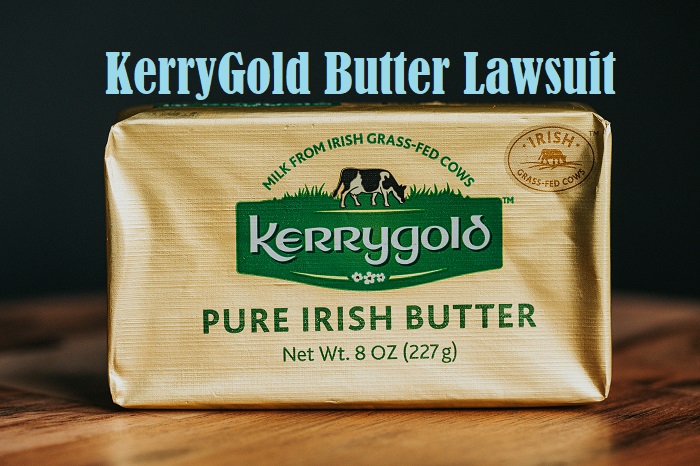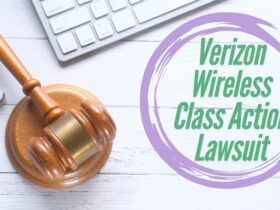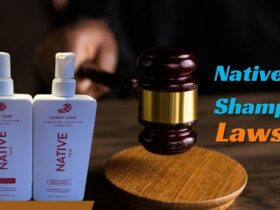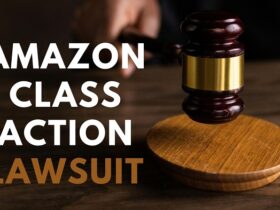Renowned for its rich taste and creamy texture, KerryGold Butter has long been a favorite choice for butter aficiones. It’ made from grass-fed cows in Ireland. The butter sometimes finds promotion as a premium good with natural components. Recent legal battles, however, have begged concerns regarding the safety of this cherished trademark. Alleging that Kerry Gold’s butter includes dangerous compounds called “forever chemicals.” A class-action lawsuit has come into play against the company, Scientifically known as per- and polyfluoroalkyl substances. These compounds—PFAS—are under investigation because of possible health hazards. The main facts of the KerryGold Butter lawsuit will break out in this article. Together with an analysis of the claims and an update on the court decision.
What’s the KerryGold Butter Lawsuit About?
The case against KerryGold Butter centers on the allegation that the butter has dangerous compounds sometimes referred to as “forever chemicals,” or PFAS. These compounds find their name since they generate ongoing pollution by not breaking down readily in the surroundings. Among the several health issues associated with PFAS include cancer, hormonal disturbance, and impairment of the immune system.
Following a string of tests purportedly revealing measurable quantities of PFAS in Kerrygold Butter. It’s sold as a premium, all-natural product. The plaintiffs contend that consumers didn’t receive adequate warnings of this possible risk, which they say amounts to misleading advertising and a violation of consumer protection laws. According to the lawsuit, consumers who expected a product that complied with the high health and safety criteria recommended by its marketing had their confidence violated by the presence of PFAS in KerryGold Butter.
KerryGold Butter indeed carries harmful amounts of PFAS? It is one of the main questions of the complaint. The plaintiffs claim that the levels are high enough to seriously endanger consumers’ health, especially those of frequent regular consumers over lengthy periods. Long-term exposure to PFAS can cause major health problems. It includes cancer, liver damage, and developmental disorders in children. Since these appear to build in the body.
The case questions the safety of many other items sold as all-natural and healthy but may include dangerous elements that are not immediately clear to consumers, therefore generating major issues inside the food sector.
The KerryGold Butter Lawsuit Ruling
The KerryGold Butter litigation still stays under progress as of the most current updates; a decision pending decision. The lawsuit is class-action, hence should the plaintiffs be successful, the decision may impact many Kerry Gold Butter customers all over.
Although the particular facts of the case are still under legal review, early sources indicate that the lawsuit may have major ramifications for the food sector, particularly for businesses that promote goods as “natural” or “pure.” Should the court find in favor of the plaintiffs, Kerry Gold would be subject to large financial fines and future label and marketing modifications could result.
Early decisions have let the litigation to progress, therefore allowing the courts to closely review the allegations of the action. Although the lawsuit is still under development, it has drawn a lot of interest from environmental organizations and health activists advocating more stringent control of PFAS in food products as well as from consumers.
Whether the plaintiffs can show that the amounts of PFAS in KerryGold Butter are hazardous to human health will be one of the main determinants of the case’s result. Their case will find strength if they can prove the presence of the toxins in dangerous levels. It will be difficult and demanding, though, showing that the PFAS in the butter directly cause health issues.
End Note
Consumers are left worrying about the safety of their preferred butter as the Kerry Gold Butter lawsuit is under progress. Should you have been eating Kerry Gold Butter and worry about the possible health hazards associated with PFAS, be updated about the development of the lawsuit and follow any updates on the court processes.
The result of this litigation could have broad effects on the food sector, especially for goods sold as premium or natural ones. Consumers are probably going to demand more openness from food producers about the safety of their goods as more studies on PFAS and their consequences on human health get under way.
It is still to be seen how the court will decide in the Kerry Gold Butter matter. Still, the rising worries about PFAS contamination in food products are unlikely to go away very soon. Customers should keep educated and take into account the possible hazards connected to the goods we buy.
FAQs
1. What are PFAS, and why are they dangerous?
Used in everything from non-stick cookware to water-repellent clothes to food packaging, PFAS—per- and polyfluoroalkyl substances—are a collection of chemicals. Since they linger in the human body and the surroundings and long-term exposure has been related to cancer, immune system damage, and hormonal imbalance, they are harmful.
2. How did PFAS end up in KerryGold Butter?
It is yet unknown exactly where Kerry Gold Butter gets PFAS contamination from. Nonetheless, it is thought that the chemicals might have originated from the packaging or from feed, contaminated water, or pesticides applied in the farming operations.
3. What could happen if KerryGold loses the lawsuit?
If Kerry Gold lose the lawsuit, the business might be subject to large financial fines and have adjustments in product labeling and marketing approach. Butter purchase consumers can be qualified for reimbursement.
4. Can I continue to use KerryGold Butter?
Although the lawsuit raises questions regarding PFAS contamination, it is crucial to keep in mind that it is still under progress and no conclusive data currently links the butter to major health problems. If you’re worried, you could find it wise to regularly monitor the case for changes.
5. How can I avoid PFAS in food products?
Look for goods branded as PFAS-free or from firms with open sourcing and production methods to help avoid PFAS. You also might wish to cut out on food goods with non-stick or water-resistant packaging.










Leave a Reply